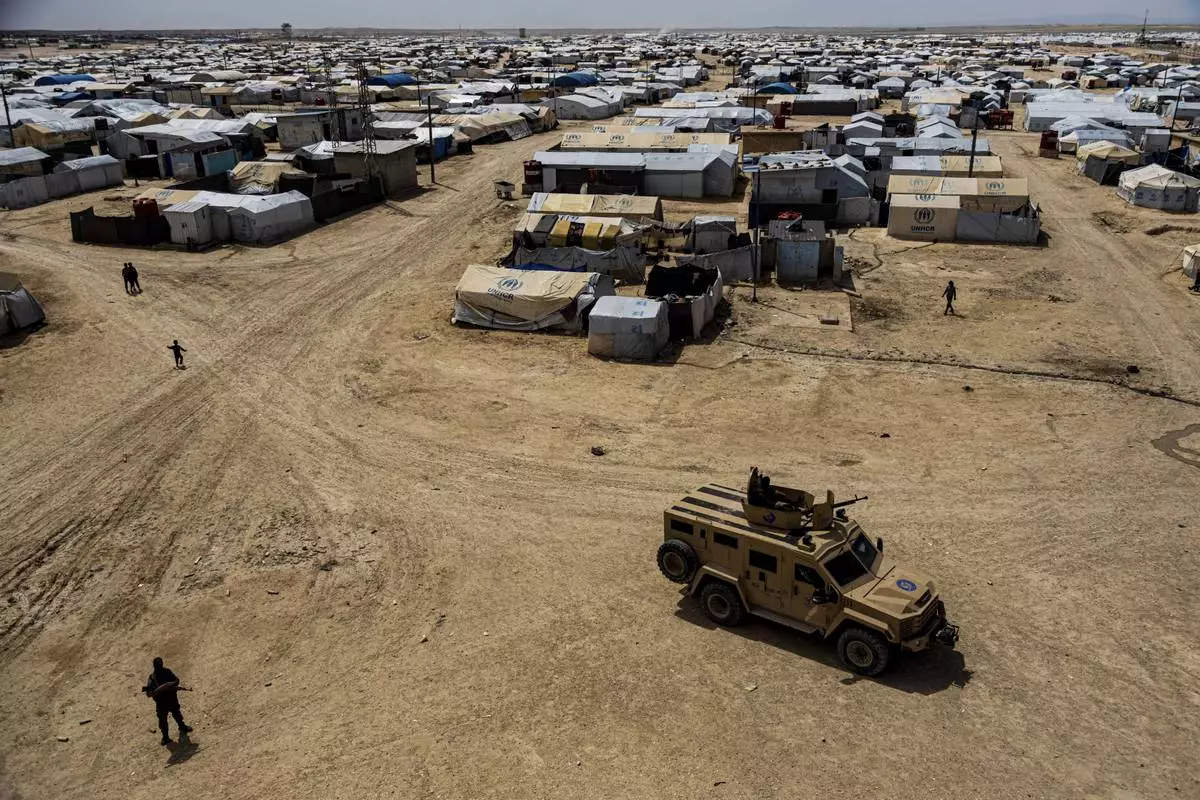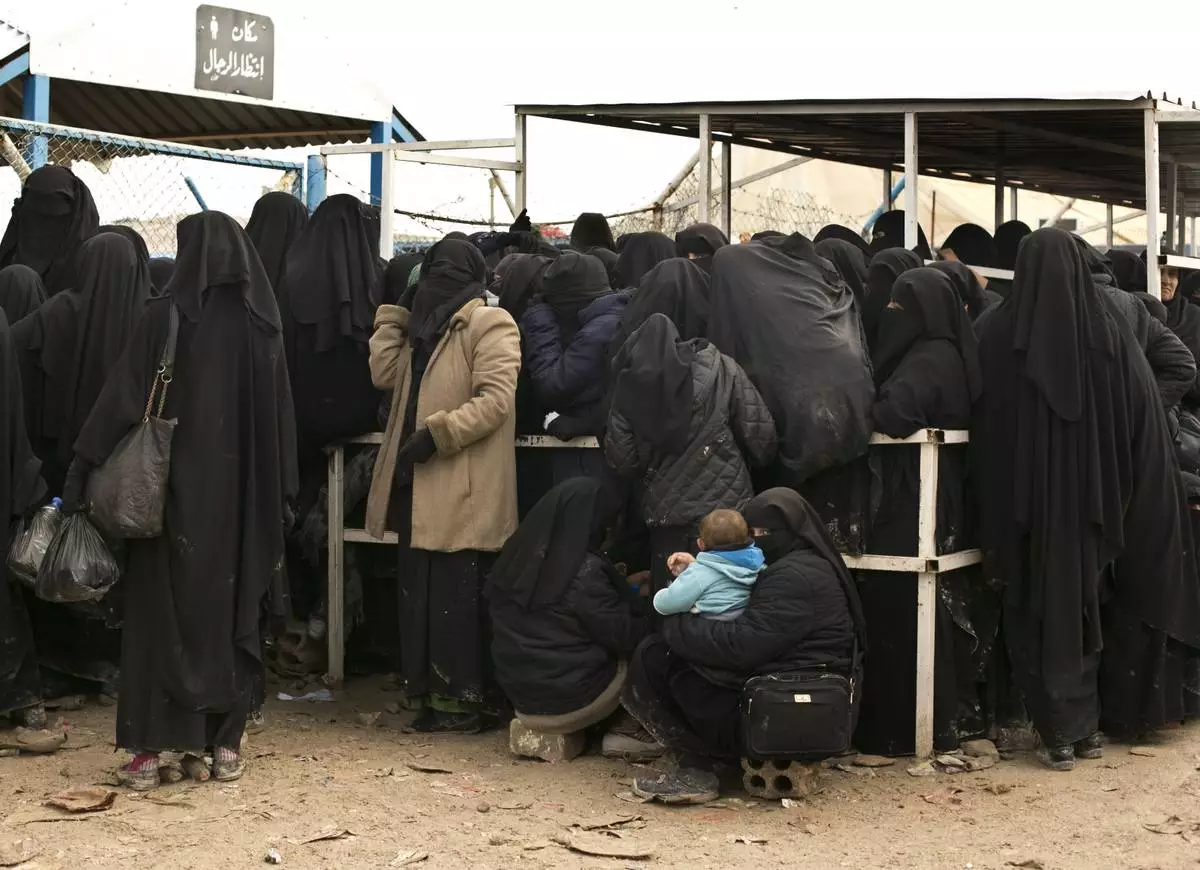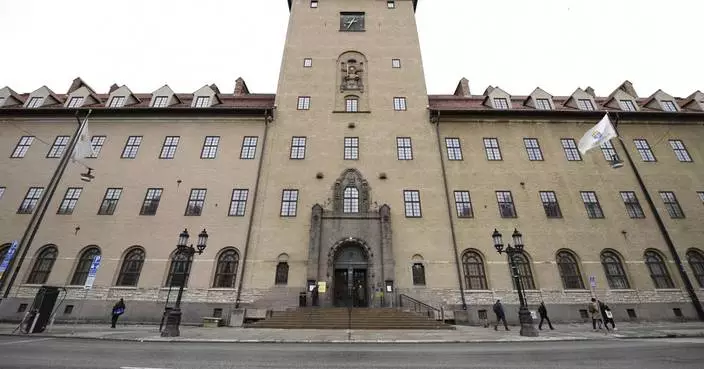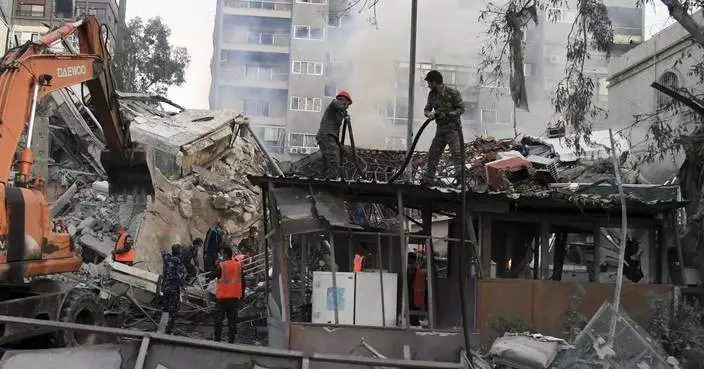Unidentified planes struck targets in Syria near the border with Israel on Friday, reports said, triggering “a huge explosion” amid soaring tensions in the region between the U.S. and Iran.
The Syrian Observatory for Human Rights said the planes targeted positions belonging to pro-Iran militias in the Boukamal area, near the border with Iraq. The Britain-based organization which documents the war in Syria through a network of activists on the ground said the planes struck among other targets weapons depots and vehicles belonging to the militias.
It reported several explosions in the border area. Deir Ezzor 24, an activist collective that reports on news in the border area, said that the planes strikes struck trucks carrying weapons and depots for ballistic missiles in the area. Omar Abu Laila, a Europe-based activist from Deir el-Zour who runs the group, said the attack triggered “a huge explosion” heard in the Syrian-Iraqi border.
The Sound and picture, another activist collective in Syria's eastern Deir el-Zour area, said “unidentified planes" struck militia targets in Boukamal.
There was no immediate comment from Syria or Iraq, and the reports could not be independently confirmed.
The U.S. carried out military strikes in the area on Dec. 29, killing 25 members of an Iran-backed Iraqi militia in retaliation to a rocket attack on a military base in Iraq that killed a U.S. contractor. The U.S. blamed that attack on a Iranian-backed Iraqi militia.
Israel has also struck Iran-backed militias in the area in the past.
The reported airstrikes came days after a U.S. drone strike killed Iran’s most powerful general after he landed at Baghdad airport, drawing angry calls for revenge and escalating tensions to the brink of an all-out war between the two sides.
Iran responded by firing a barrage of missiles at military bases in Iraq that host U.S. troops. Since then, both sides have signaled they were stepping back from further escalation but tensions remain high and the region on edge.
Amid the soaring tensions, Russian President Vladimir Putin made a rare visit to Syria this week for talks with President Bashar Assad in Damascus. Russia has been a key ally for Assad, offering crucial military and political backing throughout the country’s civil war.
The area struck Friday is key to a land corridor for Tehran that links Iran across Iraq and Syria through Lebanon. The Observatory report on Friday claimed that Putin had informed Assad during the visit of a U.S. intention to “close” the land corridor for good.
BEIRUT (AP) — Amnesty International said Wednesday it has documented widespread abuses, including torture and deprivation of medical care, in detention facilities holding thousands of suspected Islamic State members and their relatives in northeast Syria.
The centers and camps hold about 56,000 people — the majority of them children and teens — and are run by local authorities affiliated with the U.S.-backed, Kurdish-led Syrian Democratic Forces. The SDF and its allies, including U.S.-led coalition forces, defeated the Islamic State group in Syria in 2019, ending its self-proclaimed Islamic “caliphate” that had ruled over a large swath of territory straddling Iraq and Syria.
What to do with the suspected IS fighters and their families has become an intractable issue. Many countries whose citizens traveled to Syria to join IS have been reluctant to repatriate them, as have local communities in Syria.
"People held in this system are facing large-scale violations of their rights, some of which amount to war crimes,” Nicolette Waldman, Amnesty’s senior crisis advisor, told journalists.
The United States is also responsible for the alleged violations because it played a key role in establishing and maintaining the detention system, providing hundreds of millions of dollars to the SDF and affiliated forces and regularly interrogating detainees, Waldman said.
The human rights group interviewed 126 people accused of IS affiliation currently or formerly detained, along with representatives of the local administration and aid workers.
The Amnesty report said the vast majority of detainees are being held “indefinitely, without charge or trial, in violation of international human rights law and international humanitarian law,” while those who have been tried were, in many cases, convicted on the basis of confessions extracted under torture.
The alleged abuses include “beating, stress positions, drowning, electric shocks and gender-based violence,” including a male detainee who said he and others had been sodomized with broomsticks by guards, the report said. Detainees were also deprived of food, water and medical care and subjected to extreme cold and heat in overcrowded cells, with some allegedly dying of suffocation, it said.
The report added that many of the approximately 14,500 women and 30,000 children held had been victims of human trafficking, including women who were forced to marry IS fighters and minors who were forcibly recruited by the group, and that local authorities had failed to set up a “mechanism to identify trafficking victims” and protect them.
The report also criticized the practice of forcibly separating adolescent boys — some as young as 11 or 12 — from their mothers and placing them in rehabilitation centers indefinitely.
Amnesty called on local authorities, the U.S. government and other allies to bring the detention system into compliance with international law and urged the United Nations to work with them to establish a screening process to release all who are not “reasonably suspected” of having committed a serious crime.
The Autonomous Authorities of the North and East Syria Region, the civilian administration affiliated with the SDF, wrote in response to the Amnesty findings that it had not received any official complaints regarding torture in detention facilities and “if this happened, they are individual acts.”
The administration said it would take action against employees who committed violations if evidence is provided. It denied allegations that inmates were deprived of food, water and medical care. It acknowledged overcrowding in the facilities, which it attributed to lack of financial resources to secure larger centers.
The local authorities took issue with the allegation that people were arbitrarily detained, asserting that most detainees “are members of a terrorist organization and were arrested during the battles" and that many had committed crimes against humanity and war crimes.
The U.S. State Department said in its own response that “we share many of (Amnesty’s) concerns” and it has been working to address them. It called on the international community to “aid local entities’ management of these challenges” and for countries with citizens held in detention in Syria to repatriate them.
Waldman said she believes Washington "very likely knew about these poor conditions from the beginning."
She added: “We think that it may not be the case that they are doing everything they can. They need to accept a much greater responsibility, especially since they played such a key role in establishing the situation in the first place."

FILE - Kurdish forces patrol al-Hol camp, which houses families of members of the Islamic State group in Hasakeh province, Syria, on April 19, 2023. Amnesty International said Wednesday, April 17, 2024 it has documented widespread abuses, including torture and deprivation of medical care, in detention facilities holding thousands of suspected Islamic State members and their relatives in northeast Syria. (AP Photo/Baderkhan Ahmad, File)

FILE - Women residents from former Islamic State-held areas in Syria line up for aid supplies at Al-Hol camp in Hassakeh province, Syria, March 31, 2019. Amnesty International said Wednesday, April 17, 2024 it has documented widespread abuses, including torture and deprivation of medical care, in detention facilities holding thousands of suspected Islamic State members and their relatives in northeast Syria. (AP Photo/Maya Alleruzzo, File)











